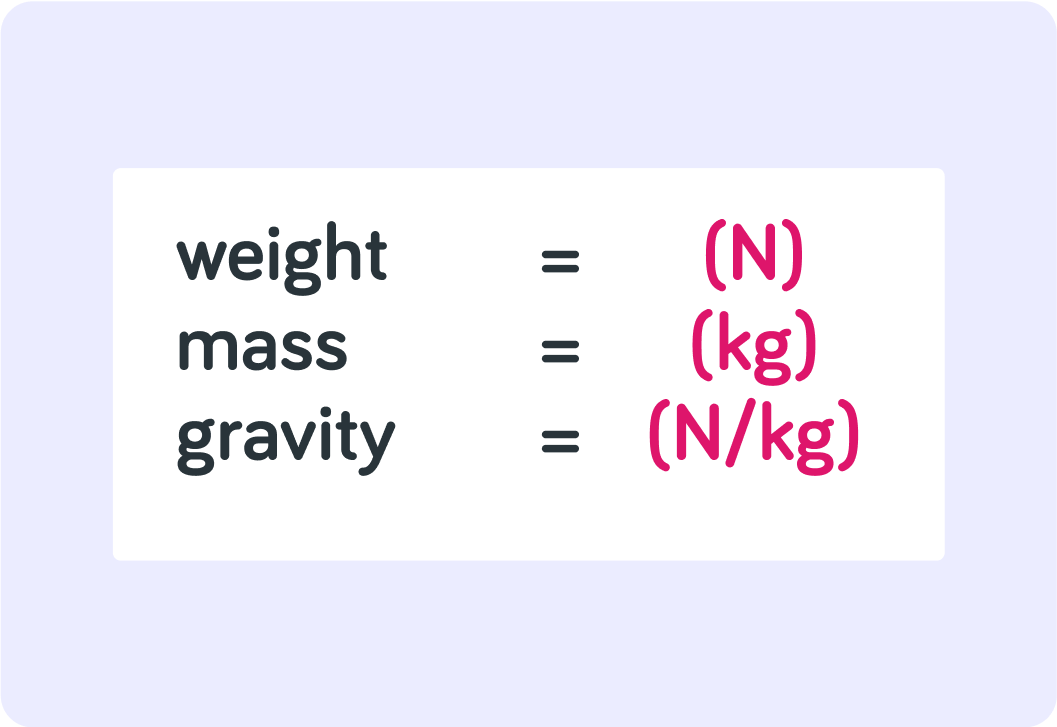YOU ARE LEARNING:
The Difference between Mass and Weight

The Difference between Mass and Weight
Mass and weight are not the same thing! Mass is measured in kilogram. Weight is a force measured in Newtons.
In physics, mass and weight are not the same thing!
Take a look at the image. What do you measure mass in?

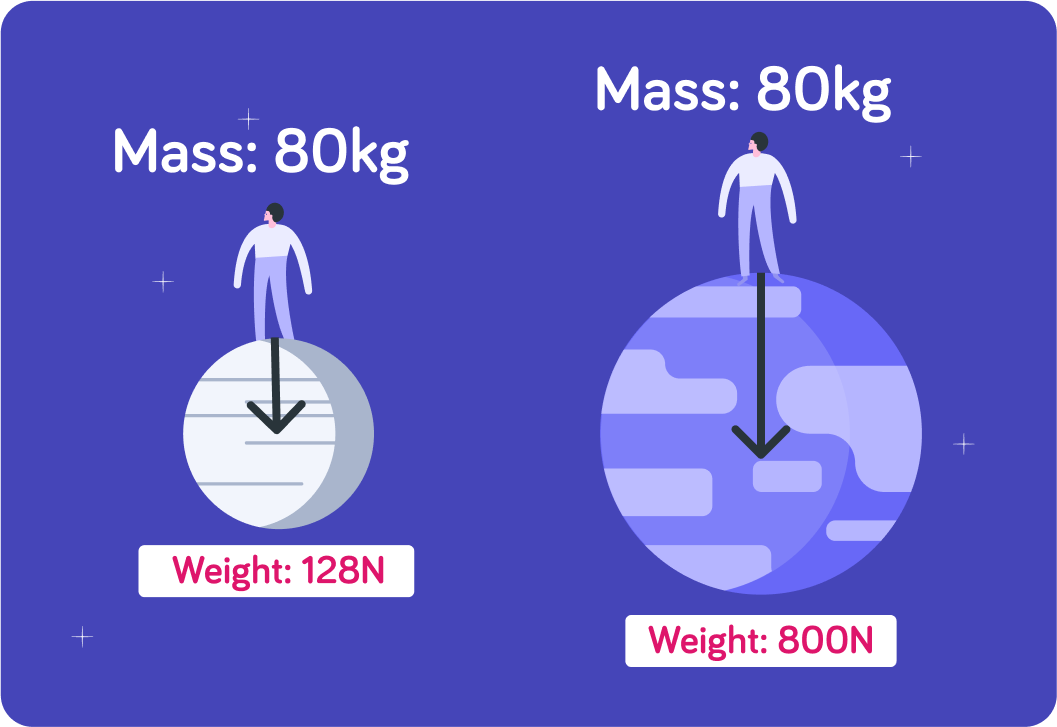
What do you measure weight in?


This is probably a bit confusing!
In everyday life we talk about weight in kilograms. For example: "I weigh 60 kilos."
But in physics, mass and weight are different things! This lesson will explain this difference.

These three people all have different mass
What is the mass of the woman in the middle?

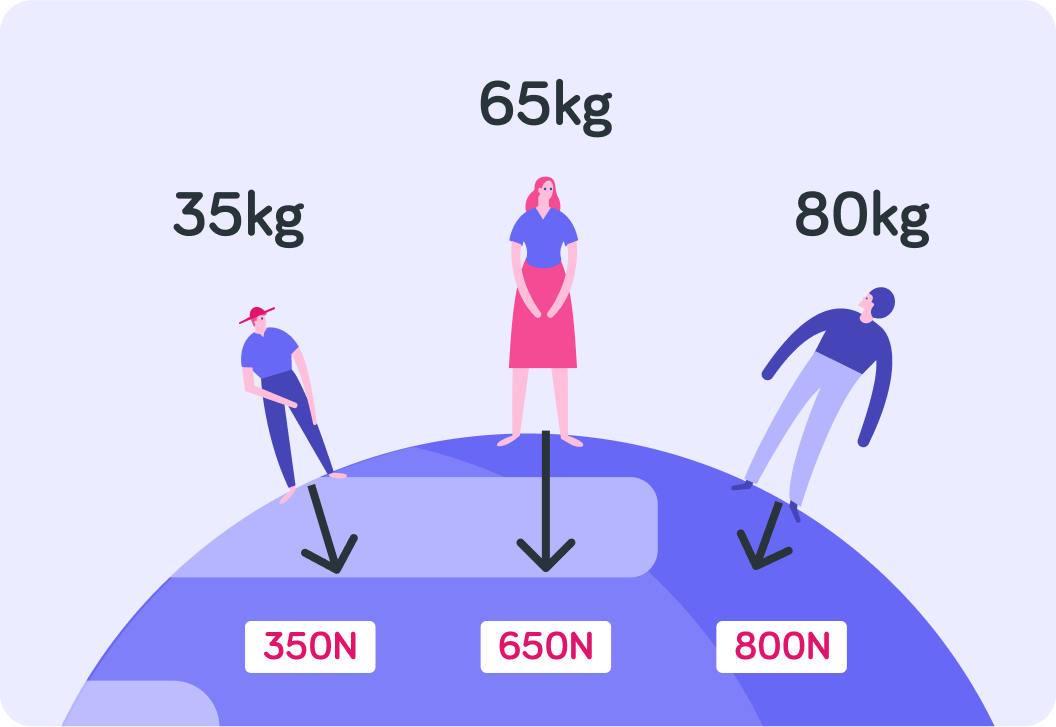
Now, what is the woman's weight?


How do you find the weight in Newtons when you have the mass in kilograms?


So you found the woman's weight like this weight (N)=65 kg×10
But! You only multiply by 10 because these people happen to be standing on Earth.
If they were standing on the Moon, you would only multiply by 1.6!
Why is that?

Now you have the weight of the woman both on Earth and on the Moon
The woman's weight is different between the Earth and the Moon because weight depends on a specific force. Which one do you think?

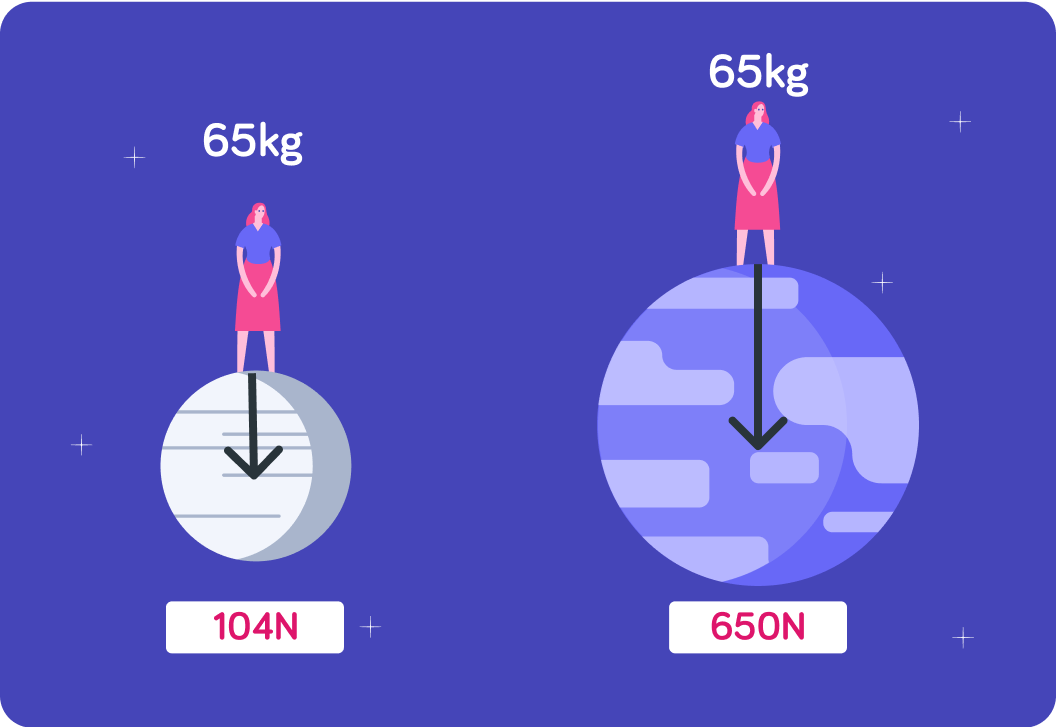
So what does weight really mean in physics?
When we talk about weight, we are actually talking about the amount of force (N) that gravity is pulling at your mass with!

The formula for weight
On Earth, gravity is pulling at this astronaut with 10 Newtons per kilogram of mass. So what is the correct way to state what gravity is on Earth?

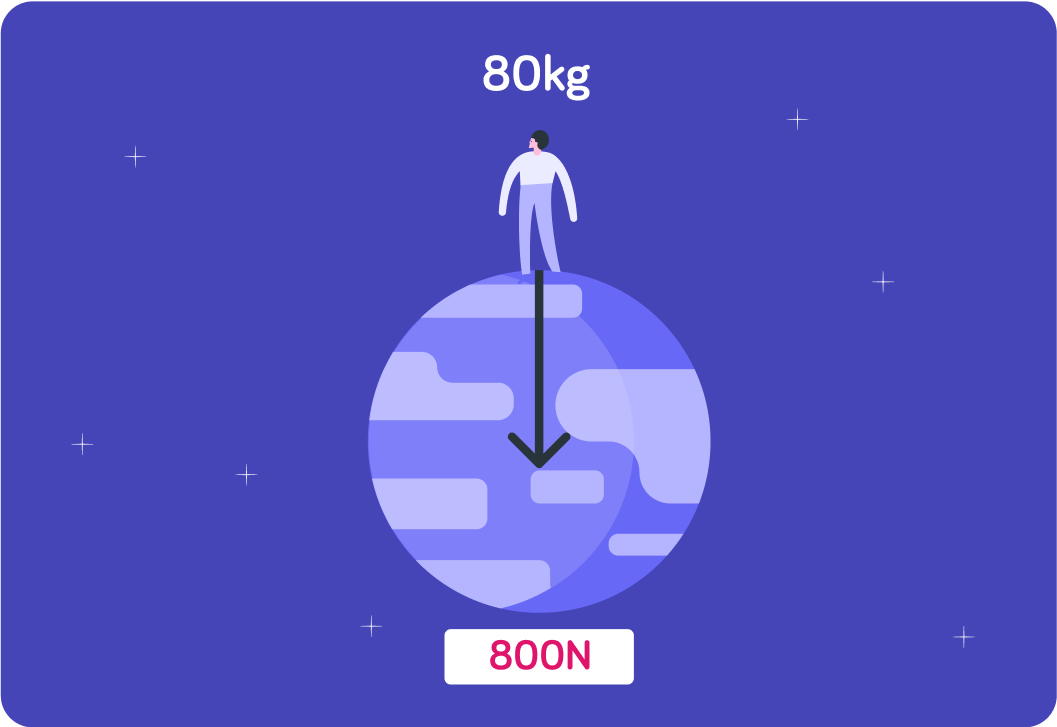
You work out this man's weight on Earth like this 800 N=80 kg×10 N/kg. What is the formula for weight, then?


What if the astronaut was not on Earth, but on the Moon. How would you calculate his weight then?

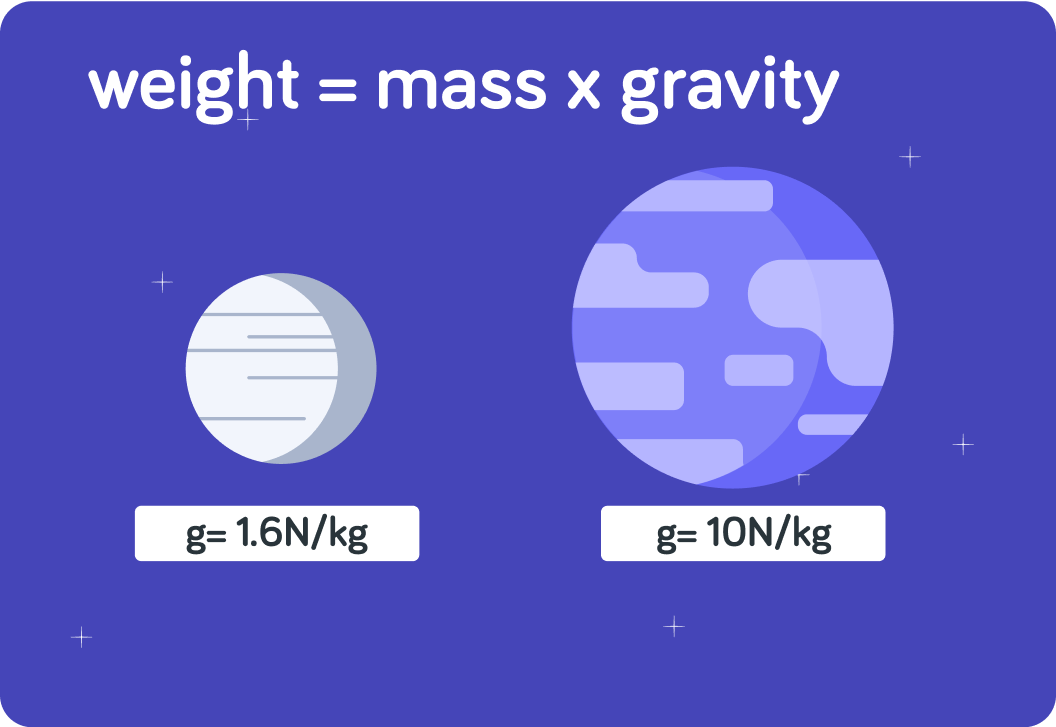
So weight=mass×gravity
On Earth, gravity is approximately 10 N/kg
On the Moon, gravity is approximately 1.6 N/kg

What would be the weight of this fox on the Moon?

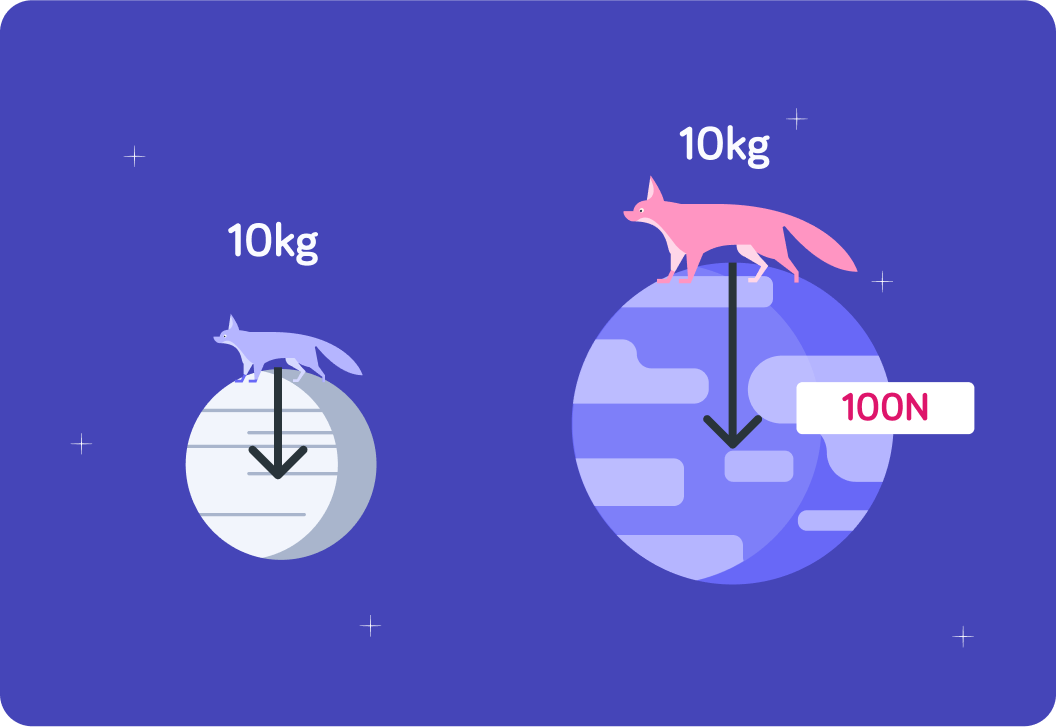
Mass ** (kg) changes depending on where you are, for example on Earth or on the Moon.

Mass (kg) is not dependent on gravity, but weight (N) is.

The relationship between mass and weight
Have a look at this formula where gravity is 10 N/kg. What happens to the value of weight if you increase the value of mass?

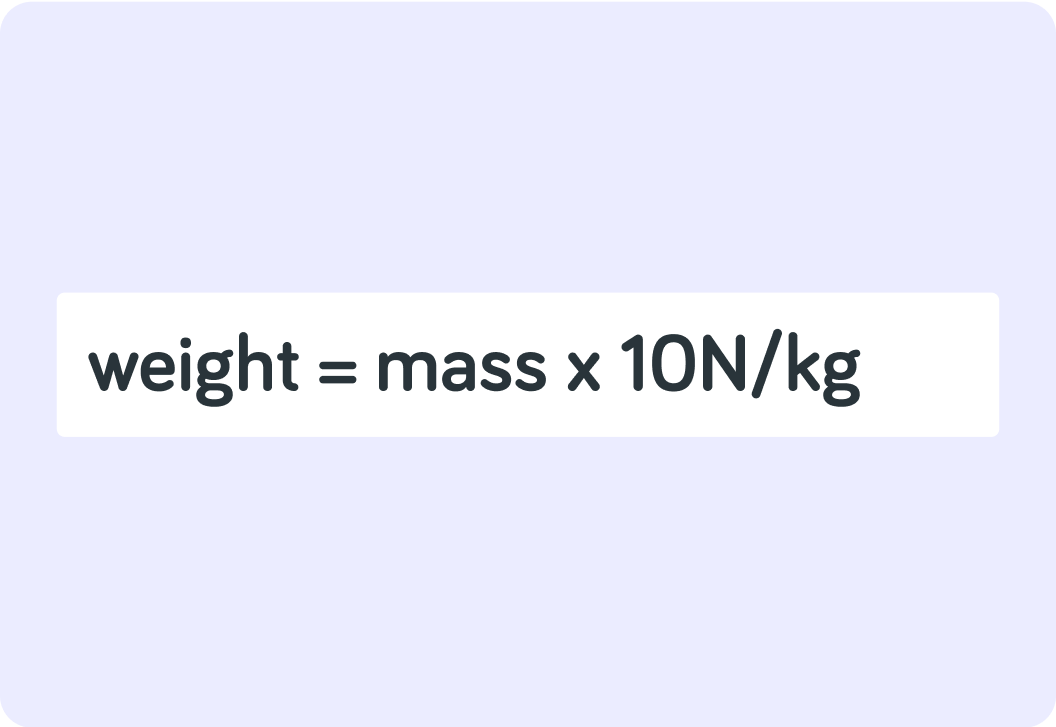
What happens to the value of weight if you decrease the value of mass?


So if mass increases, weight also increases and if mass decreases, weight also decreases. That means that mass and weight are _____________________.


So mass and weight are directly proportional
Assuming that gravity stays the same, if you increase mass you also increase weight, and if you decrease mass you also decrease weight.

Summary!
Mass and weight are not the same thing in physics!
Mass is how much matter there is in an object, for example 80 kg
Weight is how much force gravity is pulling at that mass with, for example 800 N

So mass is not affected by gravity, but weight is
If your mass is 65 kg on Earth, it will also be 65 kg on the Moon.
You weight, on the other hand, will be 650 N on Earth, but only 104 N on the Moon.

The formula for weight is weight=mass×gravity
Gravity on Earth is approximately 10 N/kg
Gravity on the Moon on the other hand is only approximately 1.6 N/kg, so your weight will be approximately 6 times less on the Moon than on Earth!

Assuming that gravity is the same, weight and mass are directly proportional
If you increase mass, you also increase weight and if you decrease mass, you also decrease weight.

Finally!
Weight is measured in Newtons, which means that weight is actually a type of force.
Mass is not a force!
